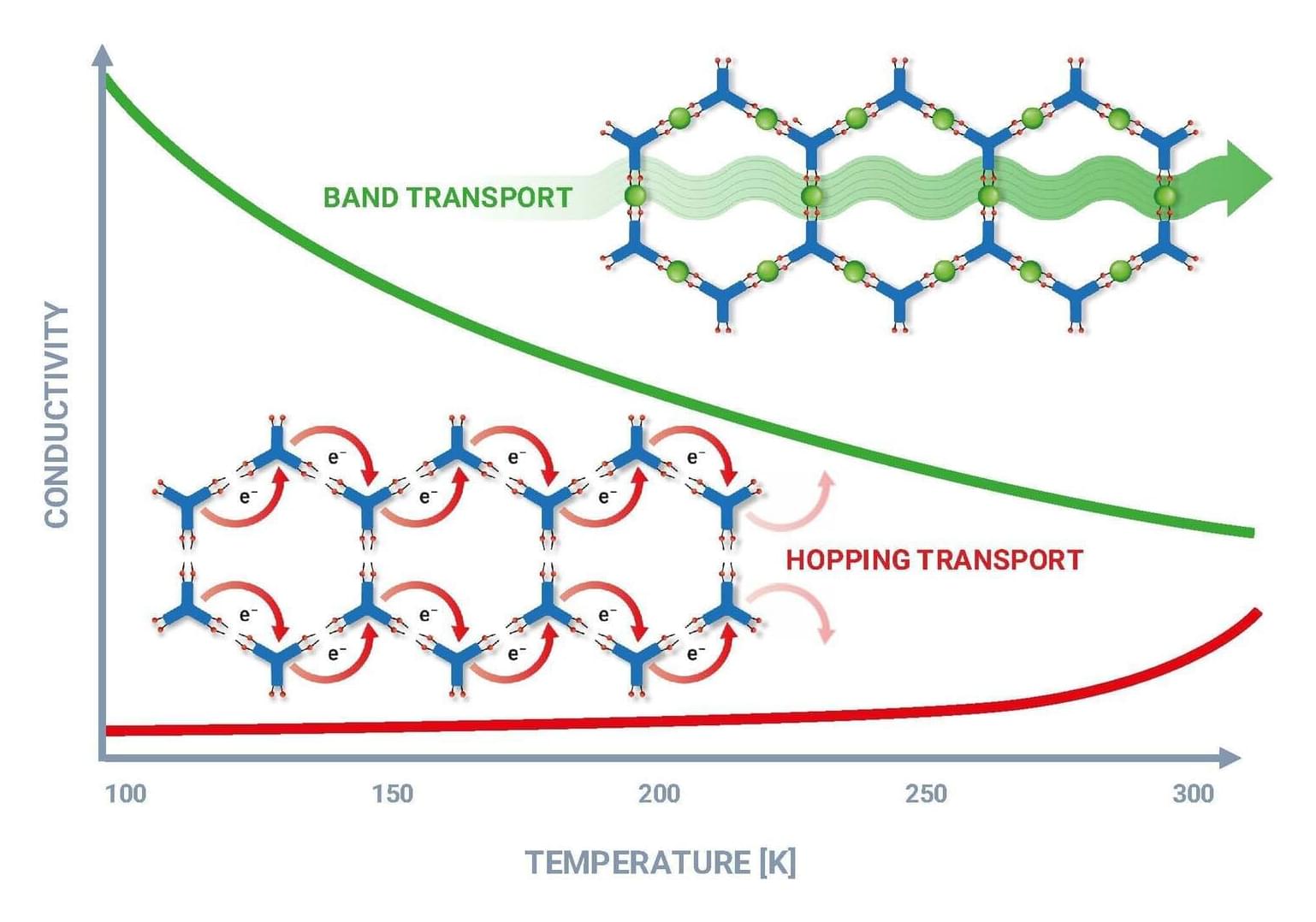Metal-organic frameworks (MOFs) are characterized by high porosity and structural versatility. They have enormous potential, for example, for applications in electronics. However, their low electrical conductivity has so far greatly restricted their adoption.
Using AI and robot-assisted synthesis in a self-driving laboratory, researchers from Karlsruhe Institute of Technology (KIT), together with colleagues in Germany and Brazil, have now succeeded in producing an MOF thin film that conducts electricity like metals. This opens up new possibilities in electronics and energy storage —from sensors and quantum materials to functional materials.
The team reports on this work in the Materials Horizons journal.
